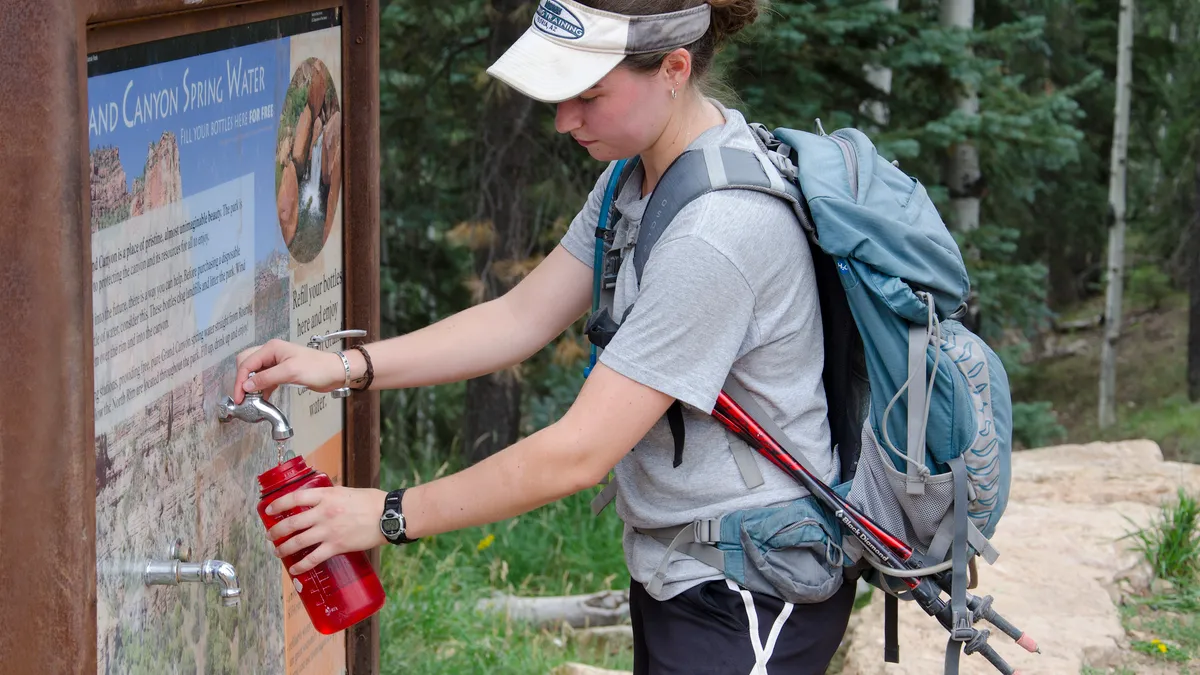Dive Brief:
- Rep. Mike Quigley (D-IL) introduced on Wednesday what his office calls the "Reducing Waste in National Parks Act," which would codify a ban on the sale of single-use plastic water bottles in national park facilities.
- Quigley's bill comes after the Trump administration rolled back an Obama-era guideline banning the sale of single-use plastic water bottles in national park facilities.
- According to Quigley's office, the bill would allow regional directors of the National Parks Service to decide how to best implement the ban, in order to deal with difficult external circumstances — like if a park is in a particularly hot climate, for example. The bill would also encourage the Parks Service to develop educational campaigns explaining the ban.
Dive Insight:
The initial ban came from an executive action, so it was easily reversed by President Trump. Washington aside, a study from 2016 showed that visitors to National Parks had a low awareness of waste issues — where water bottles and single-use plastic bags were found to be among the most common waste items. Prohibiting the sale of plastic bottles in the parks could go a long way to diverting plastic waste in general. According to Quigley's office, Utah's Zion National Park saved the equivalent of 5,000 pounds of plastic by installing water refilling stations in lieu of selling disposable bottles.
Single-use plastic is a big issue for the industry, and is one of the areas that can, and has, reached a significant level of public awareness, too. Seattle businesses, for example, are voluntarily stopping the use of some plastic utensils before such a policy is legally implemented. A recent study showed that the total weight of virgin plastic ever produced is over 8 billion metric tons; only 9% has been recycled. Plastics reduction and recycling can then be seen as a critically important issue — though the world's largest buyer of scrap plastic may be implementing an import ban, which could disrupt the market and make plastics recycling less profitable. If international trade is going to be a smaller channel for plastics recycling in the near future, the domestic market needs to catch up.
If passed into law, Quigley's bill could have significant impact on the amount of plastic waste generated in the United States, seeing as there are hundreds of sites operated by the National Parks Service. The bill does have a dozen cosponsors, including Rep. Keith Ellison, who's shown an interest in waste issues before. However, given the current political climate, including a bitterly divided Congress, the bill doesn't exactly have an easy way forward, especially since all cosponsors are Democrats — who hold no majority power in the House or the Senate.










